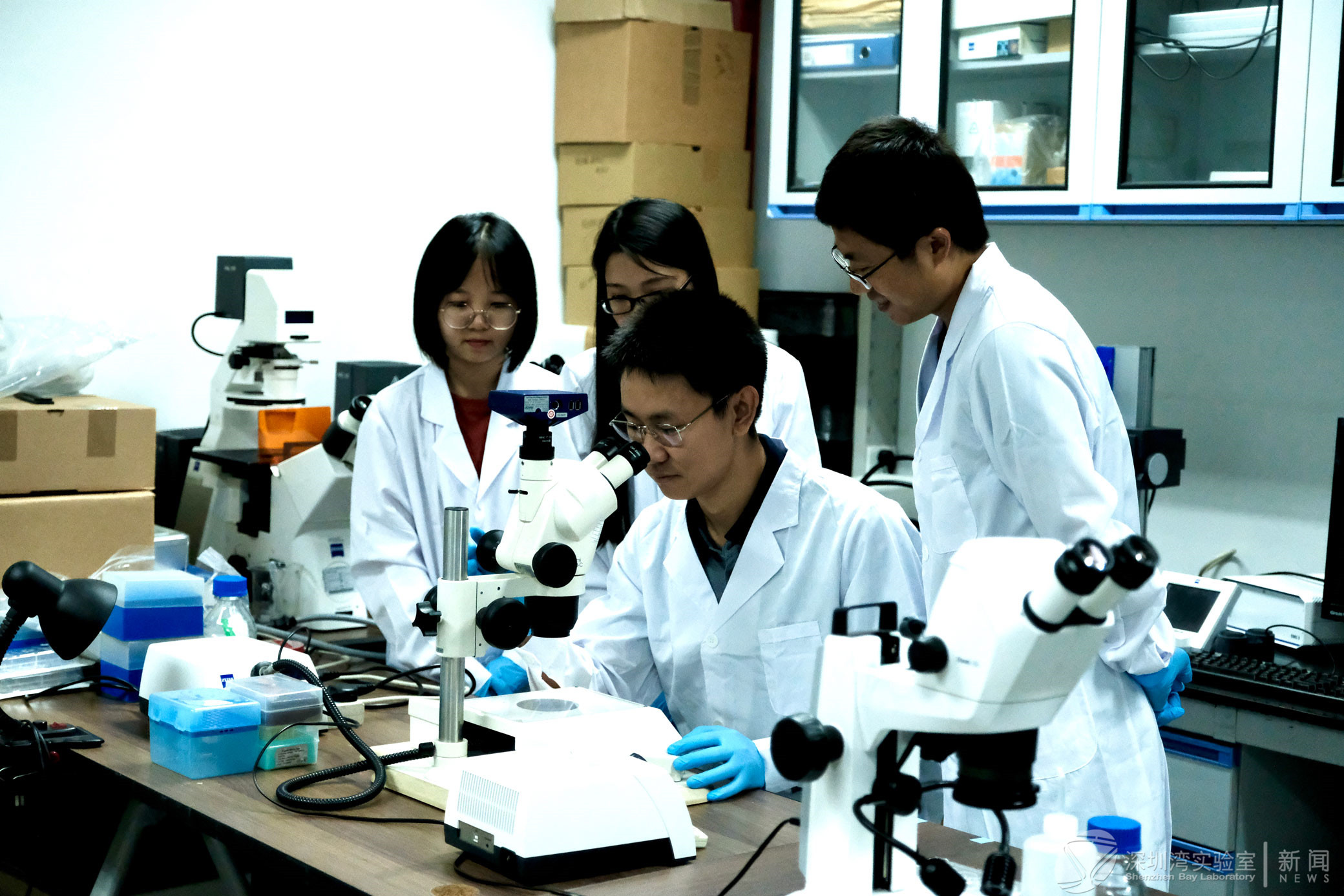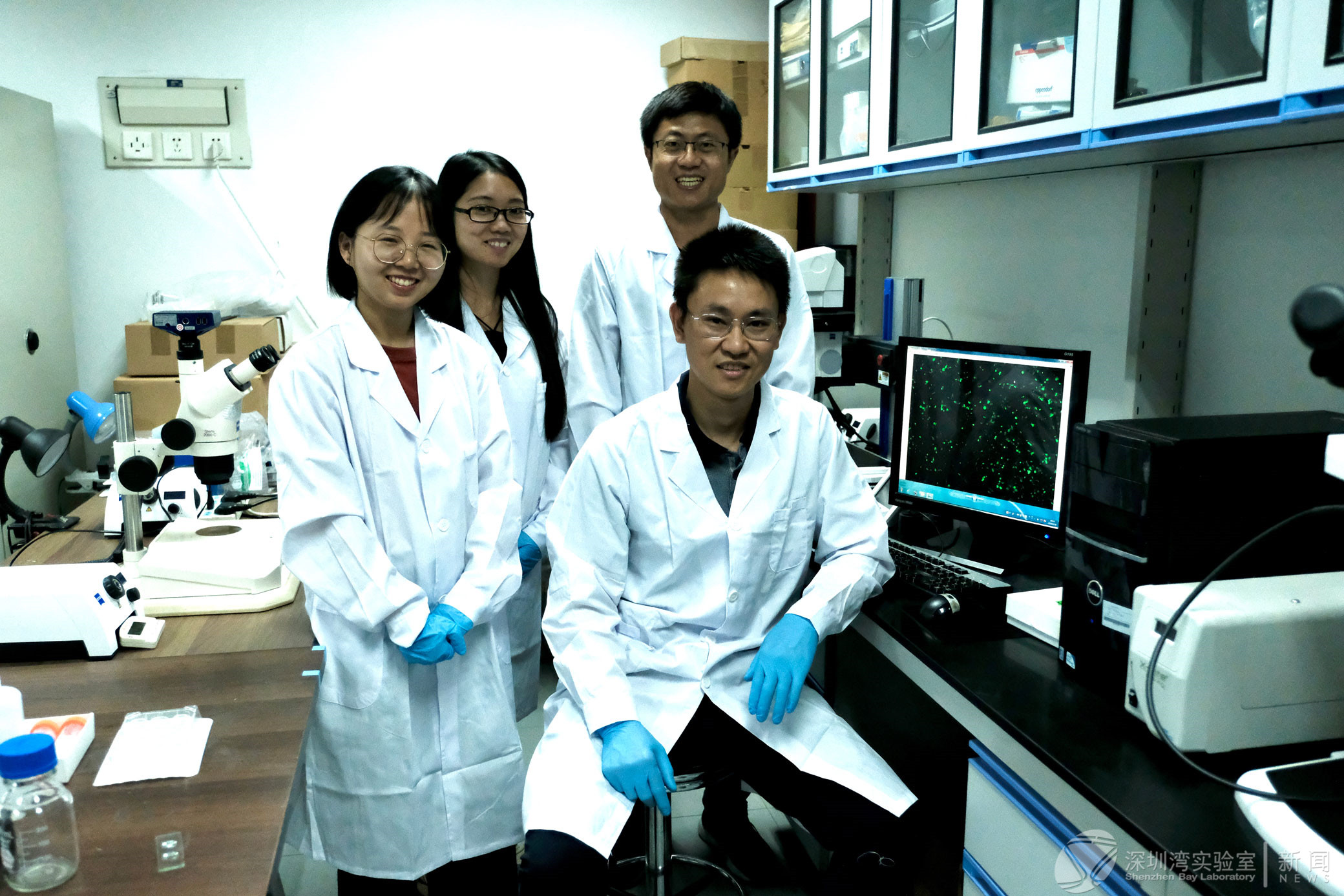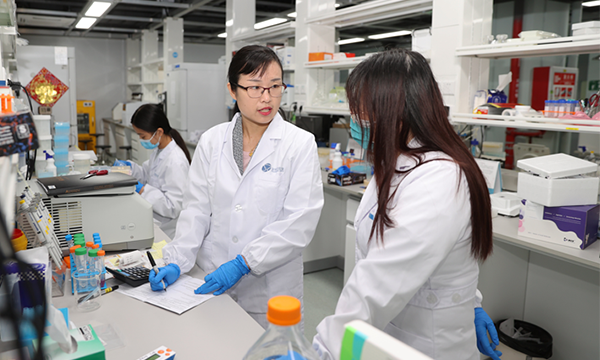Bio of ZHONG Guocai
Dr. ZHONG is the assistant professor and translational biology group leader at the Institute of Translational Medicine the Shenzhen Bay Laboratory.
Dr. ZHONG worked in Dr. Wenhui Li laboratory at the National Institute of Biological Sciences (NIBS), Beijing between 2008 and 2013. During this time, he combined a bioinformatics-based genome-wide virtual screening and siRNA-based medium-scale biological screening to identify host factors potentially associated with HBV infection. He was one of the major contributors in the discovery of NTCP as a functional receptor for HBV, HDV, and WMHBV. After moving to The Scripps Research Institute (TSRI) in 2013, he shifted gears and started to focus on genetic switch engineering toward developing controllable gene therapies. So far in this direction, he has already published two sole-corresponding author and one co-corresponding author papers in Nature Chemical Biology, eLife, and Molecular Therapy.
Dr. ZHONG’s current research primarily focuses on the following two directions. The first direction is aimed at developing controllable gene-therapy treatments or prophylaxis for fatal genetic diseases, aging-related chronic diseases, and major infectious diseases. The second direction combines synthetic biology engineering and infectious disease biological studies to develop pathogen-specific protein, RNA, or metabolite-sensing devices and apply these devices to performing chemical screens and genetic screens to identify novel anti-infection drugs and targets.

Returning to Motherland
Dr. ZHONG was in the interview with us in the afternoon of September 29, 2019 - just 72 hours since his flight landed Shenzhen. Without any traces of fatigue but genuine passion on his faces, ZHONG spoke with us his plan and work ready to be commenced here in SZBL.
“Our research here will have two major directions”, ZHONG said, “one will be continuing and incrementally expanding my previous research in Scripps reagrding controllable gene-therapy and related applications in the treatment of major diseases; one will be a coming-back to where I used to work on before I moved to the US, which was about the molecular basis of virus and the discovery of antiviral new drugs”.
“I hope that building on my existing strengths, I can produce outcomes that really serve the greater good of our nation and people in my future work with SZBL”, said ZHONG.
“SZBL Speed”
“Personally, I want to kickoff as earlier as possible. This gives more time to adjust and adapt to the new environment will help to drive our research more effectively”, as ZHONG put it, “also, I need to be really responsible and make sure the work of my group, in which 1 postdoc and 2 research assistants have already been recruited”.
Even within a short time, Dr. ZHONG was feeling much impressed by how the laboratory has grown with “Shenzhen speed”. Ever since the start of the pre-placement procedure in the August this year, an initial research group of 3 has already been set up by the laboratory for ZHONG.
Management and procurement work of the group has been running smoothly from then on and within only one month, the research lab began to take shape. In ZHONG’s words, efficiency is critical for one to become top in the bio-pharmaceutical sector. SZBL is surprisingly efficient in multiple aspects, ZHONG said.
Intellectual Destiny
Dr. ZHONG first heard of SZBL when the laboratory was initially launched as one of the second batch of Guangdong Provincial Laboratories. As a fledging hub aspiring to deliver top-notch research, SZBL has been eagerly seeking for talents like ZHONG, to join and make impact.
The laboratory opened up the doors for those overseas Chinese talents to return, including ZHONG. A one-on-one meeting was soon arranged by the laboratory with him, allowing more information and ideas to exchange. ZHONG was delighted to find possibilities for collaboration between SZBL scientists and himself. And besides, he was feeling inspired of how SZBL envision a blueprint of becoming a national laboratory, and of the joint contribution as well as trans-disciplinary endeavors here. Such positive opportunities for scientific research and professional talents was benefited from a central guideline to develop Shenzhen as a pilot demonstration area of socialism with Chinese characteristics, released on August 9, 2019. The guideline supports Shenzhen in enhance its function as the core role in the construction of the comprehensive national science center, and also aligns importance to develop the Shenzhen-based bio-information and biomedical laboratory. All these are creating a stronger magnetic field for the city to attract more high-end scientific talents.
After making a considered decision, Dr. ZHONG returned back to China - his motherland.
Set Sail Once Again
As data indicate, there are about 86 million infected-HBV patients in China. Treatment of HBV largely influences the wellbeing of our population. As explained by Dr. ZHONG, that even though existing HBV vaccine was there to help to prevent this kind of infection, still there were 5% to 15% of the whole vaccinated group remain low-response or non-response. The prevalence of HBV has resulted in the infection on the world’s 250 million population, and confronting such huge infected numbers, even vaccine injection fail to keep the HBV infection completely under control. A new and effective delivery of anti-HBV drug is essential for the treatment of HBV as a global health threat. And this will be one of the key research directions for ZHONG to take in his collaboration ahead with SZBL.
Back to the year of 2012 when Dr. ZHONG was working in Dr. Wenhui Li’s group in the National Institute of Biological Sciences (NIBS), he was succeeded to be one of the major contributors in the discovery of the Na+-taurocholate cotransporting polypeptide (NTCP) as a functional receptor for HBV, HDV, and WMHBV. The discovery was a key milestone in the molecular biology research of HBV. However, that was still a starting point for seeking curative therapy for HBV infection.
“There are still big and tough challenges for us to address in our research, and I hope we will be able to make that really happen”. For Dr. ZHONG, research and endeavor to make lives better will never cease.











